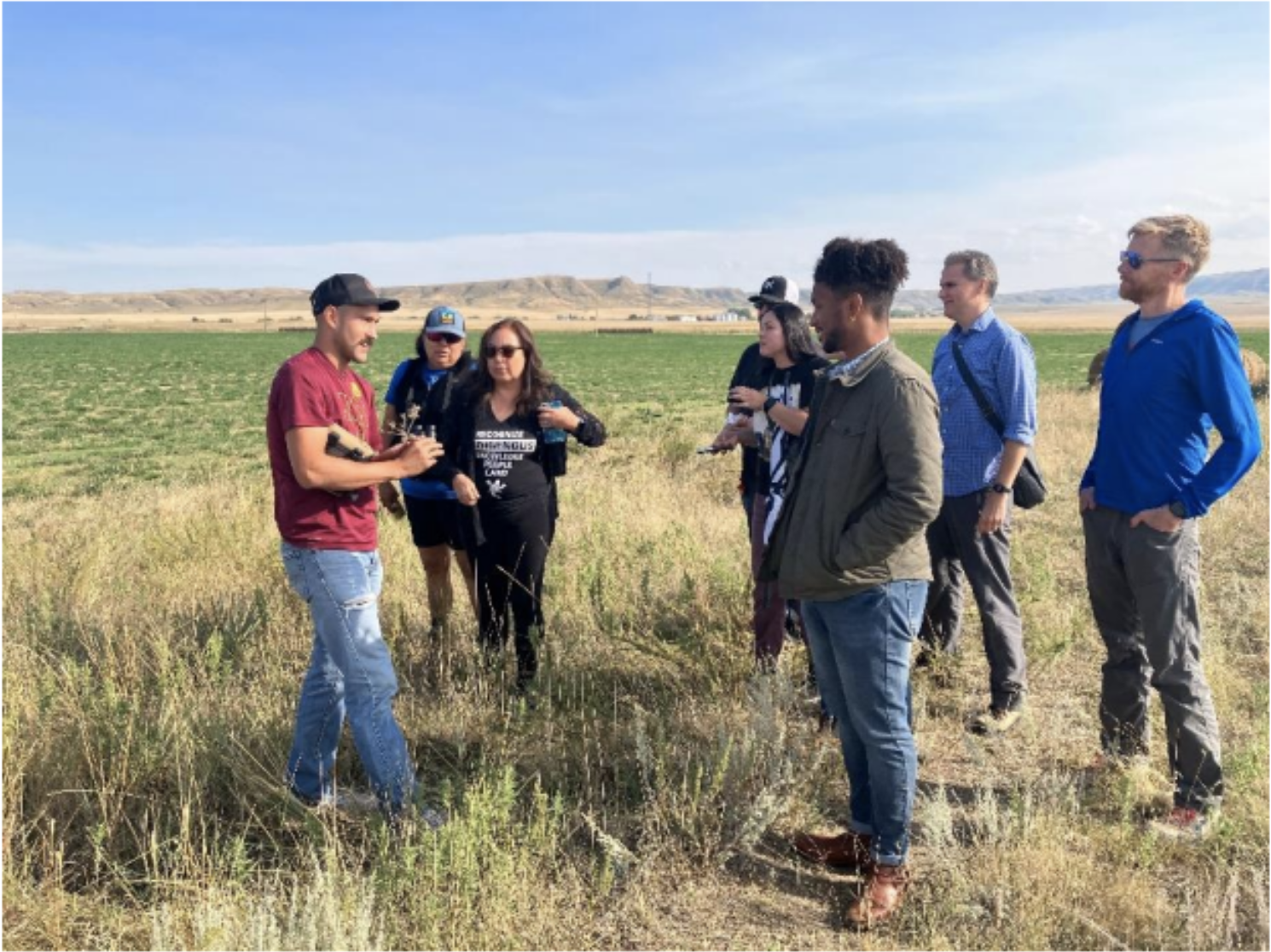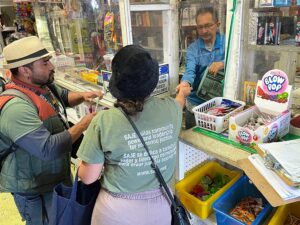Case Studies: Climate Gentrification & Small Business Displacement
SBAN has awarded grants to four organizations to conduct case studies of strategies that combat climate gentrification and prevent small business displacement. Over the next year, these organizations will work with SBAN to document how they are supporting BIPOC- and immigrant-owned businesses in communities that are impacted by climate-related gentrification.
Public and private climate-related investments can significantly change neighborhoods, displacing small businesses and the residents whom they serve. Communities are increasingly impacted by climate disasters, long-term effects of climate change, climate migration, or climate resilience investments that kickstart or compound gentrification. BIPOC- and immigrant-owned small businesses in under-resourced neighborhoods are particularly vulnerable to both climate disasters and climate-related gentrification.
Awardees will have the opportunity to learn from other case study teams, receive consultant support from SBAN experts, and present their work to the network and other stakeholders at SBAN events. Taller Communidad La Goyco in Puerto Rico and Strategic Actions for a Just Economy in Los Angeles will also host site visits for SBAN members, staff, and leadership. These participatory workshops offer a first-hand look at how organizations are working with small businesses and residents on anti-displacement efforts related to climate change.
Grant Awardees
American Sustainable Business Institute, National

This case study will explore the systems, strategies, and cultural foundations that Tribal Nations are using to address climate change and prevent the displacement of Indigenous small businesses. Drawing on a Memorandum of Understanding with the U.S. Department of the Interior, long-standing relationships with Native Nations, and cross-sector networks, ASBI will conduct a systems-level scan across the 12 unified Interior Department regions, which are organized by watershed. This regional approach will allow us to understand the unique and shared elements of climate resilience across diverse geographies and governance structures.
Taller Comunidad La Goyco, Santurce, Puerto Rico

Since Hurricane Maria, recurring infrastructure failures like power and water outages have threatened residents’ ability to remain in place. In response, La Goyco operates as a gathering point during outages and promotes long-term sustainability by offering affordable rental spaces to small businesses and entrepreneurs. It also hosts monthly open-air fairs, free classes, a food garden, a pantry, a rotating clinic, and other quality-of-life programs. The center’s model of collective governance and adaptive reuse of public infrastructure offers a replicable approach to placekeeping in historically marginalized communities.
This case study highlights how La Goyco combines physical infrastructure, inclusive programming, and solidarity-based decision-making to create a resilient, community-anchored alternative to displacement that preserves cultural identity and supports economic opportunity.
Strategic Actions for a Just Economy, Los Angeles
 Strategic Actions for a Just Economy (SAJE) builds community power and leadership for economic justice. Since 1996, SAJE has stood with neighbors in South Central Los Angeles and beyond, fighting for tenant rights, healthy housing, and a city that prioritizes people over profit. Through public policy advocacy, know-your-rights workshops, self-help clinics, and popular education programs, SAJE equips communities to lead the charge for justice, ensuring their voices are heard in city and county government.
Strategic Actions for a Just Economy (SAJE) builds community power and leadership for economic justice. Since 1996, SAJE has stood with neighbors in South Central Los Angeles and beyond, fighting for tenant rights, healthy housing, and a city that prioritizes people over profit. Through public policy advocacy, know-your-rights workshops, self-help clinics, and popular education programs, SAJE equips communities to lead the charge for justice, ensuring their voices are heard in city and county government.
This case study examines how climate investments are accelerating the displacement of small businesses in South Central Los Angeles. Over the past few years, these investments have brought necessary and beneficial bike lanes, expanded green space, heat-resistant pavement, solar panels for property owners, and transit-oriented development to the area. Unfortunately, they have also intensified displacement pressures on commercial tenants, who account for the majority of small business owners. As a result, the area is seeing a precipitous rise in rents, evictions, and landlord harassment aimed at freeing up storefronts for commercial tenants who can pay more, forcing many longstanding businesses to close. The case study will include recommendations for a Commercial Tenant Bill of Rights to prevent climate gentrification and protect small businesses.
Jorge M. Perez Metropolitan Center at Florida International University, Miami-Ft. Lauderdale
 The Florida International University Jorge M. Pérez Metropolitan Center (JPMC) is an applied research institute that provides policy solutions to public, private, and non-profit organizations in South Florida.The center offers services and studies tailored to the specific contexts of communities and individuals.
The Florida International University Jorge M. Pérez Metropolitan Center (JPMC) is an applied research institute that provides policy solutions to public, private, and non-profit organizations in South Florida.The center offers services and studies tailored to the specific contexts of communities and individuals.
In recent years, Miami’s Little Haiti community has been affected by both climate gentrification and a heightened level of market-rate real estate investment activity. Rapid gentrification has resulted in the displacement of Little Haiti’s small businesses and a gradual diminishment of cultural settlement that followed the Haitian diaspora to Miami in the 1970s . The Little Haiti Cultural Complex and Caribbean Marketplace, the hub of Little Haiti’s arts and cultural community, has continued to hold ground despite rapid gentrification and displacement. The Little Haiti Revitalization Trust, established as part of the community benefits agreement for the approved Magic City Innovation District, has focused on preserving and growing Little Haiti’s small businesses.
This case study will document the formation of a business alliance between the Little Haiti Revitalization Trust and the Little Haiti Cultural Complex and Caribbean Marketplace and deployment of a “Small Business Capital Management and Investment Strategy” to foster small business development in the Caribbean Marketplace and surrounding commercial corridors. The business alliance is being supported by JPMC in conjunction with the Small Business Development Center (SBDC) at Florida International University.
